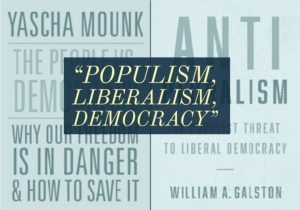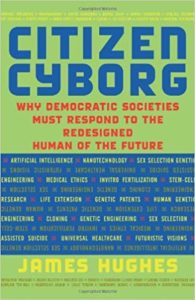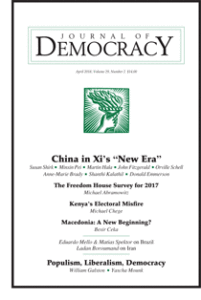 Over the past few years, increasing numbers of populist and extreme political groups and leaders have risen to power, in parallel with growing concerns about crime, immigration, economic woes and religious radicalism, the BBC reports. In issue 13 of BBC World Histories Magazine, seven experts debated whether this shift signals the dawn of a new era of political extremism…
Over the past few years, increasing numbers of populist and extreme political groups and leaders have risen to power, in parallel with growing concerns about crime, immigration, economic woes and religious radicalism, the BBC reports. In issue 13 of BBC World Histories Magazine, seven experts debated whether this shift signals the dawn of a new era of political extremism…
“The idea that liberal democracy would prove the most lasting form of government seems under major threat today,” says Rana Mitter, professor of the history and politics of modern China at the University of Oxford. “A decade ago, it seemed that democracies tended to vote for moderate leaders. Now it seems that many of them want leaders who have reacted strongly against democratic norms.”
“And the authoritarian success of China’s economy gives them part of their justification for that shift,” adds Mitter, author of Modern China: A Very Short Introduction.
 AI-driven applications will soon allow authoritarians to analyze patterns in a population’s online activity, identify those most susceptible to a particular message and target them more precisely with propaganda, note CNAS analysts Richard Fontaine and Kara Frederick:
AI-driven applications will soon allow authoritarians to analyze patterns in a population’s online activity, identify those most susceptible to a particular message and target them more precisely with propaganda, note CNAS analysts Richard Fontaine and Kara Frederick:
In a widely viewed TED Talk in 2017, techno-sociologist Zeynep Tufekci described a world where “people in power [use] these algorithms to quietly watch us, to judge us and to nudge us, to predict and identify the troublemakers and the rebels.” The result, she suggests, may be an authoritarianism that transforms our private screens into “persuasion architectures at scale…to manipulate individuals one by one, using their personal, individual weaknesses and vulnerabilities.”
This is likely to mean far more effective “influence campaigns,” aimed at either citizens of authoritarian countries or those of democracies abroad, they add.
 China seems to be implementing much more assertive and adversarial policies intended to undermine America’s position in Asia and globally, notes Derek Mitchell, president of the National Democratic Institute. It has encouraged hyper-nationalist attitudes among its people, and sought to undermine free speech and other liberal principles in countries around the world through coercive economic diplomacy, he told a University of Virginia forum.
China seems to be implementing much more assertive and adversarial policies intended to undermine America’s position in Asia and globally, notes Derek Mitchell, president of the National Democratic Institute. It has encouraged hyper-nationalist attitudes among its people, and sought to undermine free speech and other liberal principles in countries around the world through coercive economic diplomacy, he told a University of Virginia forum.
An emerging global conflict between liberalism and authoritarianism will become “all that matters,” Carnegie analyst Robert Kagan writes in the Washington Post.
We have been “living with the comforting myth that the great progress we have witnessed in human behavior since the mid-20th century, the reductions in violence, in the brutality of the state, in torture, in mass killing, cannot be reversed,” he suggests.







